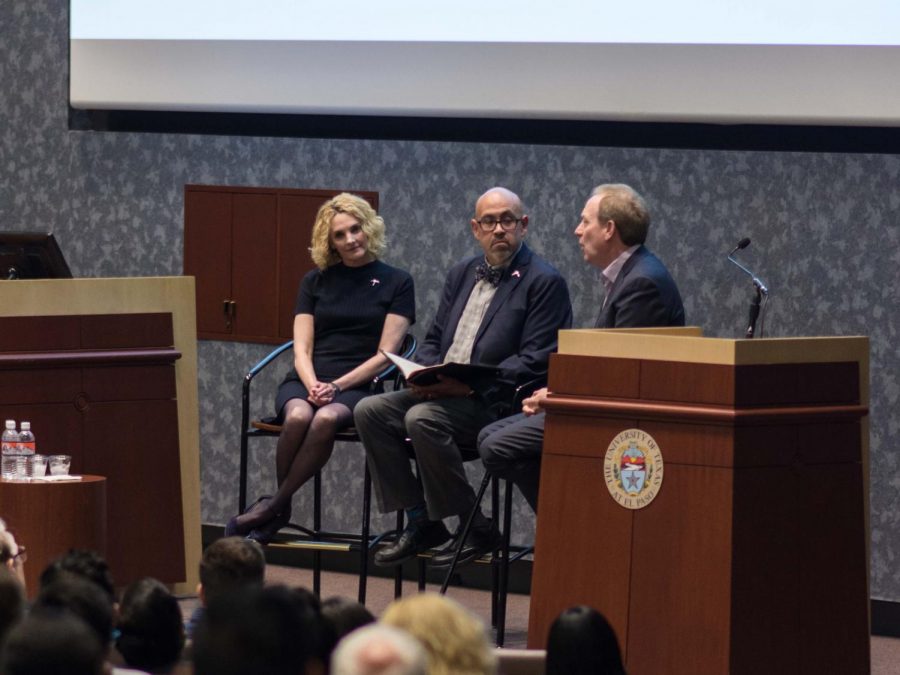Brad Smith, president of Microsoft, and Carol Ann Browne, senior director of communications and external relations at Microsoft and El Paso native, held the Centennial Lecture “Tools and Weapons: The Promise and the Peril of the Digital Age” Monday, Oct. 14, at UTEP’s Undergraduate Learning Center.
The lecture was based on the best-selling book of the same name which they co-authored and released last September.
“Technology is supposed to serve people, if it doesn’t, there’s probably not a great reason to keep creating it,” Smith said in an exclusive interview with The Prospector before the Centennial Lecture.
Their book focuses on the need to “bring humanity into technology,” and the ethical responsibility that comes with the creation of innovations such as artificial intelligence.
“We’re actually creating machines that have the capacity to make decisions that previously have only been made by people,” Smith said.
Smith talked about ethics being a fundamental part of creating artificial intelligence and how, in their book, they developed six ethical principles to guide computers to make decisions.
“In some ways, I think the most important principle is what we call accountability,” Smith said. “Making sure that machines remain accountable to people and that people remain in the loop of decision-making.”
According to Smith, the ethicality of development is not an issue solely pertaining to the creator of technology, but a multi-directional effort that involves users, companies and governments.
“No industry has ever completely regulated itself, it takes laws because some won’t get on board,” Smith said. “There’s food safety rules, there’s pharmaceutical safety rules, why can’t there be digital technology safety rules?”
During the exclusive interview, Browne mentioned part of the intent of writing the book was to help educate the general public, including policymakers.
“We have a responsibility in the tech sector to educate the government because it’s not their job to create technology, but it’s ours,” Browne said. “We are the ones that can educate them.”
Regarding some of the obstacles that can arise from the passing of laws to regulate technologies, the lack of understanding from representatives stood out.
“I don’t have any doubt in the world that people in Congress and elsewhere are more than smart enough to figure out how to address these issues,” Smith said. “It doesn’t mean that they’re ever going to know as much about how the technology is created as (the) people who created it, but they can learn enough to figure out how to regulate it.”
The authors also propose government collaboration in order to accomplish better regulation worldwide.
“Microsoft is one of the founders of a new organization called the CyberPeace Institute,” Smith said. “Part of its mission is to share this kind of (cybersecurity violations) information publicly about attacks, so then governments and others have access to that information and can use it in their attribution analysis.”
The authors referenced the Geneva Convention and how it was created as a treaty that imposed on governments the responsibility to try to keep civilians safe even in times of war and about how they proposed a new version of it.
“We point out the irony of moving from the Geneva Convention in 1949 to a world in 2019 where governments are actually attacking civilians in what is supposedly a time of peace,” Smith said.
Both authors recognize that their book aims to inform their audience about a topic that is not studied by many, but is used by most and is affecting everyone.
“It’s just important for you guys to understand these issues as you head out in the world and make decisions on how you use technology, and also how you shape your career,” Browne said.
The book “Tools and Weapons: The Promise and the Peril of the Digital Age” is available in hardcover, ebook and audio versions through Penguin Random House.
Marisol Chávez may be reached at [email protected]












